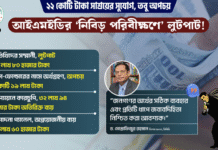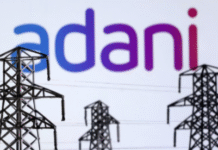
Per capita income in the country grew rapidly in the past three decades with economic growth, but failed to prevent widening inequality.
Economists blamed lack of good governance, widespread corruption and poor institutional capacity for the situation.
Talking to New Age, they said that the per capita income in the county grew five folds to $1602 in 2016-17 fiscal from $330 in 1994-95, thanks to the inflow of remittance, growing exports at the cost of cheap labour and internal consumption.
The rich, however, became richer and the poor became poorer day by day amid unequal distribution of the economic gains over the years, they said.
They linked the successive governments’ failure to ensure good governance, check corruption and increase capacity of institutions with the income inequality that took away glosses of successes in the area of poverty and child mortality.
According to the household income and expenditure survey conducted by the Bangladesh Bureau of Statistic, Gini coefficient was 0.41 against the average growth in gross domestic product of 4.8 per cent between 1991 and 2000.
The survey showed that the Gini coefficient grew further to 0.45 against the average GDP growth rate of 5.8 per cent between 2001 and 2010, meaning that the gap between income of the rich and the poor was widening.
An analysis of the survey by development economist Sadiq Ahmed, also Policy Research Institute co-founder, showed that the income share of the bottom 5 per cent of the country’s population fell from 1.2 per cent in 1983-84 to 0.8per cent in 2009-10.
The income share of the top 5 per cent population grew to 24.6 per cent net from 18.3 per cent over the same period, he said, adding that urban inequality increased faster than rural inequality.
The bureau of statistics is expected to release the findings of the new survey in this year.
The survey may not bring about any major change in the growing inequality as the present trend of economic growth is not adequate to reduce the income gap between the rich and poor.
Planning Commission’s General Economic Division member Shamsul Alam, however, expected that special emphasis on poverty alleviation by the government in line with the current five-year plan would check the widening of the inequality.
Former caretaker government adviser Hossain Zillur Rahman, however, said that it was the proper time for reassessment of the current economic development strategy to check a huge disparity.
The present trend of the GDP growth is not ‘inclusive,’ he said.
Although economist Mirza Azizul Islam is against the major change in the present trend of the GDP growth for continuation of poverty elevation, he said that income disparity became a major problem in the country.
‘It is by products of high growth’ which is seen in many developing and developed countries, he said.
He stressed the need for massive improvement in ‘employment, health and education for the bottom of the population to reduce the income inequality.’
The impacts of inequality on different sectors of the society have become acute as only a small section of people is getting high quality education, while the majority people are being deprived of it, the economists said.
Majority people are also being deprived of good medical treatment, nutrition and entertainment which lead to heightens social tensions and political and social instability, they observed.
As the inequality in a county increases, the loss in human development also increases, according to the Human Development Report, released jointly by the UNDP and the General Economics Division of the Planning Commission in 2016.
Former Bangladesh Bank governor Salehuddin Ahmed criticised the present government policy to highlight the economic growth instead of checking the inequality.
The present government has failed completely to check corruption in the country’s financial sector, he noted.
From share market debacle to near bankruptcy of the state-owned BASIC Bank and Hallmark loan scandal in Somali Bank general people became losers, he said, adding that good governance in the financial sector and other sectors should be established to check inequality.
There is difference of opinions among the economists to address the inequality. All of them, however, said that the unequal distribution of economic gain was hurting the economy and preventing the nation from a sustainable economic growth.
Source: New Age









